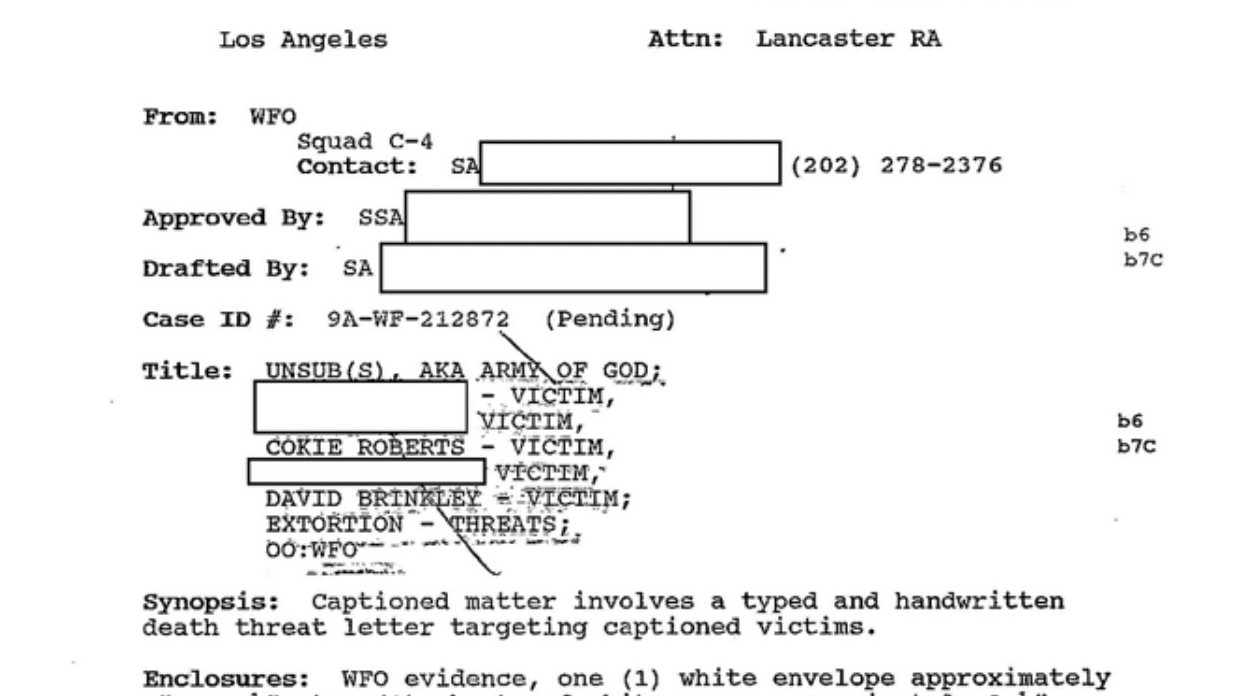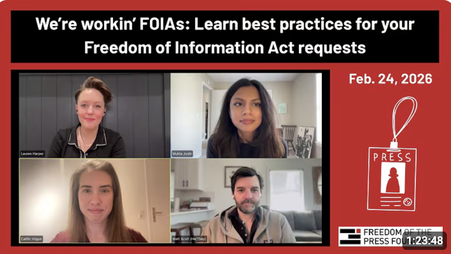Dear Friend of Press Freedom,
I’m Lauren Harper, the first Daniel Ellsberg chair on government secrecy at Freedom of the Press Foundation (FPF), and welcome to “The Classifieds.” Read on to learn about this week’s top secrecy news.
Will the FBI disclose if it knew Charlie Kirk was in danger?
The horrifying assassination of right-wing activist Charlie Kirk raises a multitude of questions.
From a transparency perspective, my first questions were: What did the FBI know about threats against him, and could an answer be found in the bureau’s file on Kirk, if it maintained one?
I filed a Freedom of Information Act request to find out.
It’s common for the FBI to compile files on prominent individuals. These can include background checks, surveillance data, and information about threats to that person’s life.
This information is usually withheld while a person is alive, but privacy protections disappear when an individual dies, making the bureau’s records on a deceased individual subject to FOIA.
FOIA requests are how we know what was in the FBI’s files on Rush Limbaugh, Cokie Roberts (whose file starts with a litany of death threats), and many others.
We’ll see how the bureau responds to my request about Kirk’s file. It could deny the release of some information if it relates to an ongoing investigation, or it could say it kept no records on Kirk. If it didn’t, that in and of itself is indicative of a problem.
Want to read the Epstein files? You’ll likely need a FOIA office for that
If you want to read government records, whether it’s the Jeffrey Epstein files or important climate reports, you — or your favorite journalist — will likely need a FOIA office to release them.
But FOIA offices are under attack from President Donald Trump’s “most transparent administration in history.” The administration is either closing them entirely or drastically cutting their staff.
This is an existential threat to your right to know what the government is doing in the areas that impact you the most, from health to national security.
Yet too many members of Congress have stayed silent about the dangers of growing secrecy.
Luckily, FPF is making it easier to fight back.
Use our new tool to write your congressional representatives and tell them to demand that FOIA offices be kept open and fully staffed.
You can use FPF’s prewritten text and alert all your members of Congress in under a minute, or you can personalize your message as much as you like.
9/11 records turn 25 next year. They should be automatically declassified
Next year marks the 25th anniversary of the Sept. 11 attacks, and “a substantial body of records” about the event remains classified.
In theory, these and other 9/11 records should automatically be declassified when they turn 25. But this won’t happen with the 9/11 records, just as it hasn’t happened with other historically significant records, like the John F. Kennedy assassination records, because our declassification system is broken.
It doesn’t have to be this way.
The Public Interest Declassification Board argues that a centralized and automated declassification system would help ensure the public has access to the government records it has the right to read.
PIDB is right, and Congress should hold a hearing with members from the board and other experts to determine what an automated declassification system would cost and where it should be housed.
Next week
I’ll be taking next week off, so keep an eye out for the next edition of The Classifieds in your inbox on Sept. 28.
What I'm Reading
New Uvalde records reveal how the school district changed course on supporting police chief
ProPublica and The Texas Tribune have filed more than 70 public records requests for information about the 2022 mass shooting at an elementary school in Uvalde, Texas. The school district fought to keep the records secret for years, but recently posted 25,000 pages of documents in response to a settlement with the newspapers. But lawyers for the newspapers say the school district may still be withholding important files, “which could include details about the school maintenance issues with doors that failed to lock.”
How a top secret SEAL Team 6 mission into North Korea fell apart
The Times recently published a wild (and technically classified) story about Navy SEAL Team 6’s failed 2019 mission to intercept Kim Jong Un’s communications. “Several of those people said they were discussing details about the mission because they were concerned that Special Operations failures are often hidden by government secrecy.” It’s a good point, and it’s also worth noting that revealing the existence of, and details about, the classified raid has not damaged national security. The government can, and should, officially disclose more information about it.
Transparently yours,
Lauren Harper
Daniel Ellsberg Chair on Government Secrecy
Freedom of the Press Foundation





